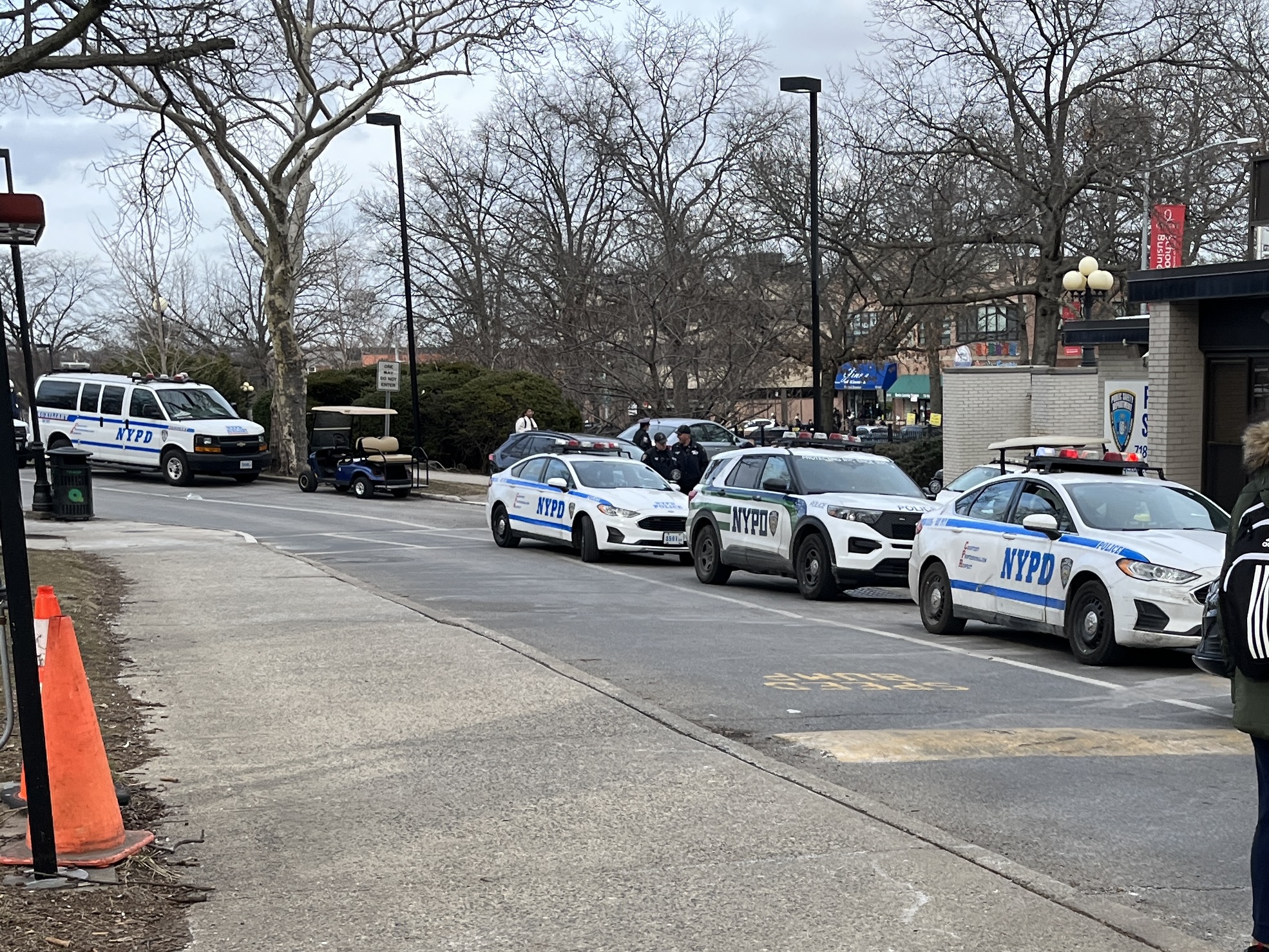EDITOR’S NOTE: Op-Eds detail the views of their writers and are not representative of the stance of the paper. Publication of Op-Eds is not tantamount to an endorsement of their content. This article was written before the incident on February 22nd.
Over the past year, it’s become common to spot a police car on the campus roads, or a group of police officers patrolling on the Quad. Police have become another part of the backdrop of Queens College life, and presumably, it’s an element meant to make students feel safe in these turbulent times. Despite this, the same force that is meant to “protect and serve” instead unsettles and acts as a source of tension rather than security.
It’s not hard to understand the discomfort. According to Mapping Police Violence’s 2023 Police Violence Report, at least 1,243 people were killed by police in 2023, an amount greater than any other year in the past decade.
With the 2020 George Floyd protests having heightened awareness of police brutality in the public eye, the view of the police as some friendly neighborhood peacekeeper has been severely eroded. For many, especially minorities such as the Black and Hispanic communities who have a long and storied history of being targeted by the police, that rosy perception never existed in the first place.
Of course, some may argue that there is no reason to fear. So long as you haven’t done anything wrong, why would you feel threatened by the police? Yet, there have been many examples of police officers threatening or shooting people on nebulous counts of them “looking suspicious.” Existing around police officers is a matter of constantly keeping yourself in check in fear of being held up, or worse, attacked.
Luciel Perez-Flores, a freshman majoring in Art History, related the fear and paranoia he feels when police are on campus. “I see the police and I worry about what they’re thinking of me, like they’re waiting for me to trip up or make a mistake.” He continued, “When I’m in the library and I see police cars outside, I wonder why they’re here and it stresses me out.”
I myself can relate to this sense of stress caused by the police. My friends and I always let each other know whenever we see any cops on campus and promise to back each other up if the worst case scenario happens. I worry for myself and other students too, especially those disproportionately likely to be targeted by police.
You can call it catastrophizing, but isn’t it strange that students would feel compelled to create plans to protect themselves from the people dispatched to, presumably, protect them?
This violence is not the result of a few bad apples, so to speak, among the bunch, but instead the systematic racism and notion of “heroic violence” that is baked into the police force at an integral level. It’s impossible to just pick out the “good cops” to use. The whole batch was rotten from the start.
If campus police only serve to make students feel unsafe, then perhaps it is best to remove their presence entirely. Policies of police abolition have been moving more and more towards the mainstream in the present years. The police are not the only possible source of security for campuses; for example, the Mental Health Justice Act of 2021 suggested dispatching trained mental health professionals in lieu of police officers in cases involving disabled individuals. Although abolishing campus police wouldn’t be a simple and painless process, it could be one that saves students in the future a lot of stress, pain, and possibly even their lives. Police reforms have proved to be useless in lessening police brutality time and time again.
It’s time for American colleges to come to terms with the rot that festers within the ranks of their so-called protectors, and make the change to flush it out and make campuses truly, genuinely safe.











